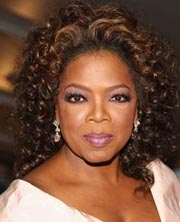Director Irena Salina talked to me about her new documentary, “FLOW: For Love of Water,” about the problems of contamination and scarcity in water systems throughout the world.
What kind of water do you drink?
Tap water! We need to get back to fall in love with tap water. If you’re concerned about chemicals, until we put state of the art filtration in place, look at the “get the tap back” information at Food and Water Watch.
What led you to this project?
My first film was “Ghost Bird: The Life and Art of Judith Deim.” She was a painter who lived in a remote village in Mexico and had known John Steinbeck when he was young and lived with gypsies in Spain. She was an inspiration to her daughters and granddaughters. I had been collecting articles about this issue. I heard Robert Kennedy, Jr. speak with Riverkeepers about fighting companies dumping chemicals in the Hudson. I responded to this like a mother, the idea of those chemicals coming into our bodies.
Then I saw an article in The Nation: “Who Owns Water?” by Tony Clarke and Maude Barlow. They asked, “Is water going to be the oil of the 21st century — could it become a monopoly?” Within the article was a small story about New Orleans, the biggest privatization project in the US and I decided to cover it. US Filter and United Water, Mayor Nagan, ACORN, a labor guy — every civil society representative was there. I brought a good friend with a camera. I covered the whole story interviewed everyone — it will be on the DVD extras. I contacted Steven Starr in LA and said, “I want to make a documentary about water.” He immediately believed in it. Then off I was going to Japan and the World Water Council, meeting all the players and the people, doing the sound, camera, everything. Next, Steven was giving me his mileage to go to Bolivia. Five years, on and off, and now it is here.
How do you convey the seriousness of the issue without leaving people in despair?
What was really, really important was to have some characters who really moved me. I thought, “Wow, this man has such an effect on me, what he is doing for the poorest of the poor, maybe there’s a chance he will go through the guts of people.” Scientists talking, I was yawning! If “An Inconvenient Truth” didn’t have Al Gore but some professor, it would not have worked. I tried to find people to be inspired by. Not just boring talking heads, yes this is a serious subject, there are young activists who scream but what I loved about Maude Barlow [author of Blue Covenant: The Global Water Crisis and the Coming Battle for the Right to Water (New Press)] was she could be your aunt, a middle class grandmother could relate to her. She was very passionate about what she does. We had tears in our eyes listening to Ashok Gadgil.
What resources are you making available to people who want to know/do more?
We are working on our website. We will have maps of the US. And people can also go to Food and Water Watch for more information.
What do you most want people to get from this film?
I love what Peter Gleick from the Pacific Institute says about how the World Bank knows how to spend $100 million but it does not know how to spend $1000 a million times. For me, that is the essence of the problem. That could not describe better what I’ve seen around the world.
What is the best advice you ever got?
Plant the seed little by little, one step at a time, with simplicity but at the same time reaching slowly from one place to another.
What inspires you?
Anything that gets me, deep, on a heart level, on a gut level, whether it’s a little woman who inspired me in Mexico, the story of water, equality, people, justice. My grandfather was in the resistance from Nice. He has an avenue under his name. He was always for the people. He view was: You had to be there, to do it, you did not even ask.
My next project is something that sort of grew on me over the last two years, planted its roots and not letting me cut it, the story of the farmers in India who are in desperate circumstances due to pesticides. I will treat it as a fiction film but explore as a documentary. I don’t know if I was Indian in a past life but there is a connection with the earth. It is not an expose but a love story. It is not “we hate Monsanto” but the story of a grandmother conserving the seeds for the next year and the next generation.


